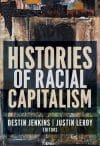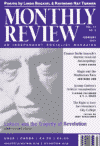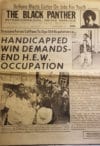Inequality

The scientific development of humanity—that is, the ability to investigate the planet collectively, integrating reason and empirical data—allowed humans to understand the world with increasing precision and transform it powerfully. Despite this, attitudes against this knowledge have been widespread, both individually and collectively. | more…

The term racial capitalism is a bit of a shibboleth. Those who invoke the phrase draw from a longstanding tradition of radical scholarship that brings attention to the material force of racialism in systems of capitalist domination. There is, however, a mounting critique that questions the term’s usefulness, casting doubt on the scholarly project initiated by Cedric Robinson. In the face of such concerns, Histories of Racial Capitalism is a much needed contribution. | more…

Elizabeth “Betita” Sutherland Martinez spent her life fighting the death and destruction imposed by the White House and the Pentagon, from border jails to police barracks in every city and town across the United States. | more…
Did Karl Marx have a theory of race and capitalism? Not exactly, but he theorized on these issues over four decades and much of what he wrote still speaks to us today. At a time of global and U.S. struggles for liberation in the face of a deeply racialized fascist threat, these writings are worth revisiting. | more…

The COVID-19 pandemic shows no signs of going away, with a new wave of SARS-CoV-2 now occurring in the form of the more readily transmittable Omicron variant. In these circumstances, the issue of vaccine imperialism, dividing the Global North and the Global South, has taken on new significance. | more…

A new poem by Linda Backiel. | more…

Despite Cuba’s advantages—its free, universal public health system and its capacity for rapid scientific development, which put it at the forefront in research and vaccine production globally—it was unable to escape the pandemic’s blows. | more…

The sick and disabled need true co-conspirators who hold politicians accountable, who value the sick and disabled as expert strategists speaking to the needs of the community; who understand and amplify our urgency and our anger. We need universal, single-payer health care—comprehensive care for all, regardless of income or health status—now. | more…

A new poem by Marge Piercy. | more…

The job of socialists is to engage with public policy from a class perspective, informed by a Marxist understanding of contemporary capitalism—not to reform it, but to abolish it. | more…

The Reissuing of 'Reluctant Reformers' and Its Contemporary Implications
The reissuing of Reluctant Reformers can inform our attempts to grapple with how the unity of the oppressed can be forged in such a way that the interests of the historically marginalized do not continue to get…well, marginalized. | more…

For many disabled people, the “abnormal” state of things over the last year and a half is not such an estranged discontinuity from the previous state of things. Certainly, just like everyone, pandemic life for disabled people has been exceedingly difficult, painful, oppressive, and deadly. But the “normal” of pre-pandemic life was also exceedingly difficult, painful, oppressive, and deadly. | more…










